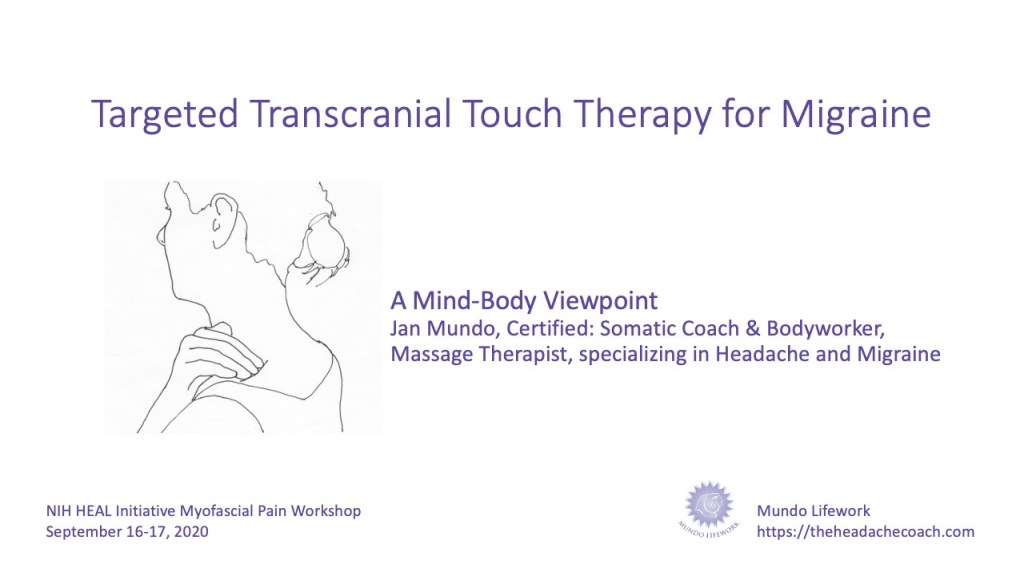
* To View this 3-page presentation, please click image to download it.
I was honored to present a clinical, mind-body perspective about migraine in a panel presentation at the NIH HEAL (Helping to End Addiction Long-term℠) Initiative’s Myofascial Pain Workshop (virtual) on September 16-17, 2020. The HEAL initiative is exploring ways to help end the U.S. opioid epidemic with non-drug therapies.
Myofascial pain is prevalent in migraine patients, and my presentation introduced a “Targeted Transcranial Touch Therapy for Migraine” (aka Mundo Method) and research about the intersection of touch, tactile attention, fascia, pain, and the brain.
The presenters, clinicians, researchers, and scientists hailed from preeminent universities, colleges, medical centers, and the NIH to discuss the properties of musculoskeletal pain, fascia, the nervous system, and cutting-edge imaging and measurement technologies with a view toward understanding and measuring myofascial pain.



You must be logged in to post a comment.